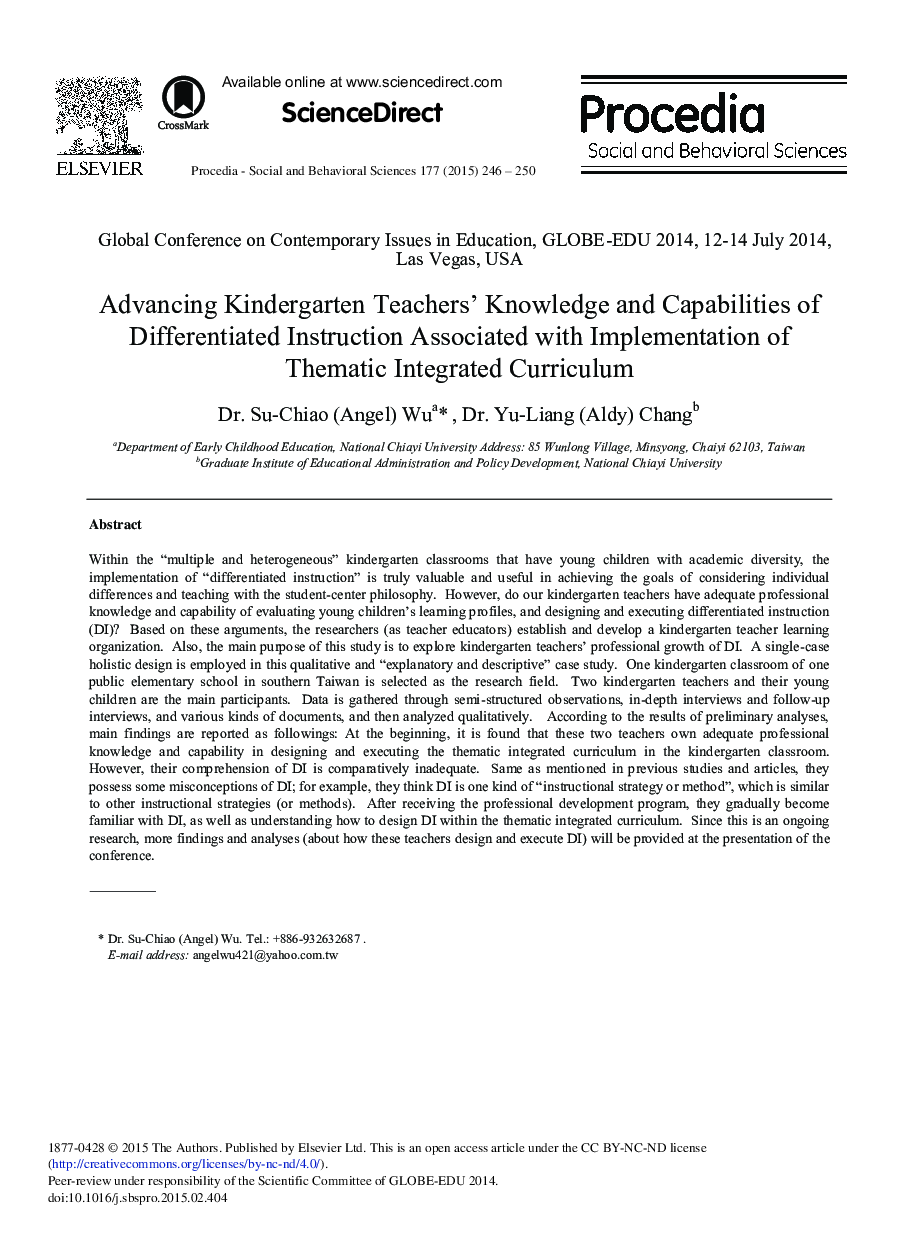| Article ID | Journal | Published Year | Pages | File Type |
|---|---|---|---|---|
| 1110665 | Procedia - Social and Behavioral Sciences | 2015 | 5 Pages |
Within the “multiple and heterogeneous” kindergarten classrooms that have young children with academic diversity, the implementation of “differentiated instruction” is truly valuable and useful in achieving the goals of considering individual differences and teaching with the student-center philosophy. However, do our kindergarten teachers have adequate professional knowledge and capability of evaluating young children's learning profiles, and designing and executing differentiated instruction (DI)? Based on these arguments, the researchers (as teacher educators) establish and develop a kindergarten teacher learning organization. Also, the main purpose of this study is to explore kindergarten teachers’ professional growth of DI. A single-case holistic design is employed in this qualitative and “explanatory and descriptive” case study. One kindergarten classroom of one public elementary school in southern Taiwan is selected as the research field. Two kindergarten teachers and their young children are the main participants. Data is gathered through semi-structured observations, in-depth interviews and follow-up interviews, and various kinds of documents, and then analyzed qualitatively. According to the results of preliminary analyses, main findings are reported as followings: At the beginning, it is found that these two teachers own adequate professional knowledge and capability in designing and executing the thematic integrated curriculum in the kindergarten classroom. However, their comprehension of DI is comparatively inadequate. Same as mentioned in previous studies and articles, they possess some misconceptions of DI; for example, they think DI is one kind of “instructional strategy or method”, which is similar to other instructional strategies (or methods). After receiving the professional development program, they gradually become familiar with DI, as well as understanding how to design DI within the thematic integrated curriculum. Since this is an ongoing research, more findings and analyses (about how these teachers design and execute DI) will be provided at the presentation of the conference.
